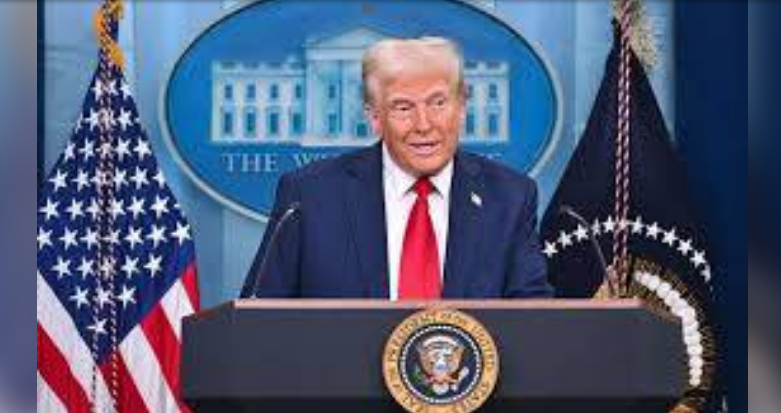Washington (Web Desk): Donald Trump's recent remarks on Gaza have stirred controversy and raised eyebrows due to their stark break from established US policy regarding the Israeli-Palestinian issue.
Addressing a press conference alongside Israeli Prime Minister Benjamin Netanyahu, Trump outlined a bold and unexpected vision for the Gaza Strip's future.
He proposed that the United States (US) assume control over the region, claiming that the US would not only oversee its reconstruction but also transform it into a thriving economic hub.
Trump referred to Gaza as a "demolition site" and envisioned it becoming "The Riviera of the Middle East," though he offered little clarity on the specifics of how such a transformation would occur.
His suggestion included the permanent resettlement of Gaza’s Palestinian population to neighbouring countries, a move that many would view as controversial, if not unlawful, especially given the long-standing international consensus on Gaza being part of a future Palestinian state.
Trump's remarks were quickly met with sharp opposition. Critics warned that his plan could violate international norms and be viewed as an attempt to forcibly displace an entire population.
Resettlement proposals have long been rejected by Arab nations, and Trump's suggestion only exacerbated tensions in an already volatile region.
The international community, including many of Washington's closest allies, would likely oppose such drastic steps, as they challenge decades of diplomatic efforts aimed at achieving a two-state solution.
Even within the US, the proposal sparked backlash, with many lawmakers decrying it as a reckless abandonment of humanitarian principles.
In this context, the Trump administration’s stance on Gaza presents a significant departure from previous US administrations, which had avoided direct intervention in the region's governance.
Trump, who had previously shied away from entangling the US in Gaza, now seems to be advocating for a dramatic overhaul of the status quo.
His ideas appear to align with hardline factions in Israel, but they clash with the broader international stance and the prevailing view in many Arab countries, including Saudi Arabia, which has made clear its refusal to normalize relations with Israel without a solution to the Palestinian issue.
The implications of Trump's proposals extend far beyond Gaza. They have the potential to alter the dynamics of US involvement in the Middle East, with critics arguing that such a move could further destabilize the region.


